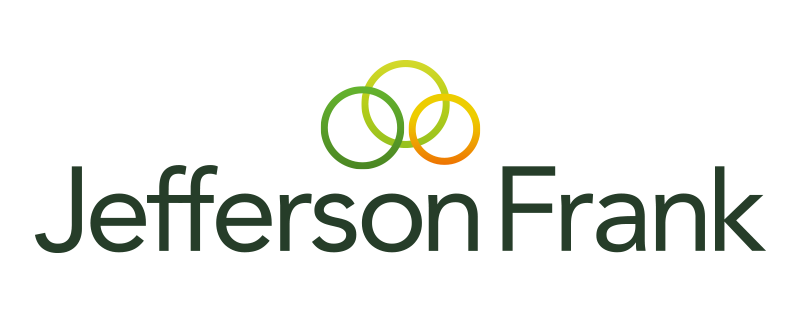
If you’re a freelance AWS professional—or considering transitioning from a permanent role—knowing how to raise your contract rate is crucial for maximizing your income and standing out in a competitive cloud market.
Whether you’re an AWS consultant, DevOps engineer, solutions architect, or cloud developer, this guide outlines what influences your market value and how to boost it.
💡 Commonly Asked:
- “How can I earn more as an AWS contractor?”
- “What skills help AWS freelancers charge higher rates?”
- “Do AWS certifications help increase my rate?”
Why AWS Freelancers Want Higher Rates
According to the Jefferson Frank Careers and Hiring Guide: AWS Edition, 68% of permanent AWS professionals said higher earning potential was their primary motivation for moving into contracting. Freelancers already in the field were even more aligned—87% cited earning potential as the top factor when accepting a contract.
However, permanent staff said they’d only switch to freelance if they could raise their earnings by at least 31%, confirming that rate-setting is a core concern for anyone working in the AWS ecosystem.
6 Ways AWS Freelancers Can Increase Their Contract Rate
1. Display In-Demand Core Skills
Top AWS freelancers succeed by balancing deep technical expertise with essential soft skills. Contractors in our survey identified the following as critical for success:
- Technical expertise (81%): Proficiency in AWS services (e.g., EC2, Lambda, S3, CloudFormation) makes you highly valuable to clients.
- Drive and enthusiasm (42%): Passion for solving cloud problems and driving innovation demonstrates commitment.
- Soft skills (39%): Clear communication and stakeholder management are vital in project-based cloud roles.
- Adaptability (39%): The ability to pivot between projects, tools, or industries ensures long-term success.
- Leadership (39%): Leading cloud migrations or mentoring junior engineers positions you as a strategic asset.
📌 Tip: Showcase these skills on your LinkedIn, resume, or AWS marketplace profile to reinforce your value.
2. Get Certified to Prove Expertise
Certifications are essential in AWS contracting—they validate your skills and increase client trust.
- 75% of AWS professionals in our guide held or were working toward a certification.
- 25% of companies cited lack of in-house AWS skills as the primary cause of delayed go-lives.
📌 Recommended: AWS Certified Solutions Architect – Associate/Professional, AWS Certified DevOps Engineer, or AWS Certified Security – Specialty.
3. Amplify and Showcase Experience
Clients want proof of your impact—not just a list of services.
- Highlight AWS projects you’ve delivered: e.g., infrastructure automation, cost optimization, or serverless architecture.
- Track and document project metrics (e.g., “reduced monthly AWS spend by 35%”).
- AWS freelancers in our survey worked with three clients at a time on average, proving that breadth of experience builds authority.
📌 Use portfolios, GitHub repos, or LinkedIn posts to spotlight successful AWS deployments.
4. Diversify Your AWS Portfolio or Specialize Further
There are two ways to increase your market value as an AWS contractor:
Option A: Diversify
- Gain exposure to multiple AWS use cases—DevOps pipelines, cloud-native app builds, or migration projects.
- Working across industries like fintech, healthcare, or retail helps build resilience and adaptability.
Option B: Specialize
- Become a subject-matter expert in areas like serverless AWS, AWS security, or cloud cost optimization.
- Niche contractors command higher rates due to focused expertise and less competition.
📊 47% of AWS freelancers we surveyed work exclusively with one client—often in highly specialized areas.
5. Let Clients Do the Talking
Social proof is one of the most powerful rate-boosters for AWS freelancers.
- 58% say finding clients is one of their biggest challenges.
- 32% list the amount of competition as a hurdle they face as a contractor.
Use client testimonials, case studies, and reviews to build credibility and justify premium rates.
📌 Ask clients for feedback after each engagement—especially if you helped cut costs, accelerate deployments, or improve reliability.
6. Avoid Scope Creep—Protect Your AWS Rate
Even the best contractors lose earnings if projects expand beyond the original plan.
- 26% experienced scope creep, where clients change deliverables without renegotiating.
- 23% of AWS contractors reported unrealistic client expectations.
📌 Tip: Include a clause in your contract that defines scope and change requests clearly.
📌 Template: “This task falls outside our current agreement. I’m happy to include it in a revised scope—here’s the updated rate.”
Summary: How to Raise Your Freelance Rate as an AWS Contractor
To command higher AWS contract rates, you need to demonstrate real-world value, reduce client risk, and market yourself as a reliable cloud expert. Whether you’re delivering infrastructure as code, optimizing cloud spend, or supporting DevOps transformations, these strategies will help you position yourself for premium opportunities.
Recap:
- Highlight AWS-relevant soft and technical skills.
- Get certified in AWS specialties.
- Showcase past cloud successes with real results.
- Broaden your experience or go deep into a niche.
- Use social proof to reinforce credibility.
- Define and protect your project scope.


